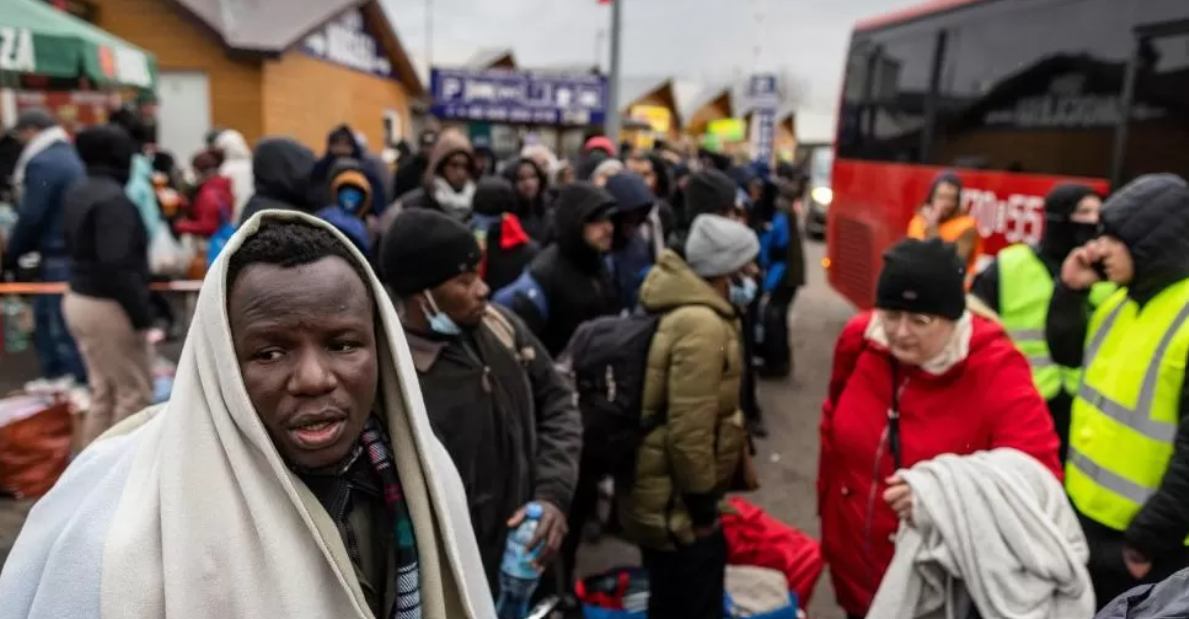An analysis of the plights of fleeing African university students during the Russia-Ukraine War.
“The war has ruined their lives. It should not be allowed to ruin their futures.” – Ambrose Musiyiwa, a Zimbabwean-British post-doctoral researcher at the University of Manchester.
Russia’s war of aggression in Ukraine has led to the movement of millions of refugees from Ukraine to various parts of Europe. Countries, NGOs, and intergovernmental organizations have swung to action to provide the necessary amenities needed for the survival of refugees in their host countries. As short and long-term solutions are sought, the issue of continuous education comes to the fore. But what has been done so far to ensure the much-needed integration of refugees into the education systems of their host countries?
For the first time ever, the European Union activated the Temporary Protection Directive setting the legal rules to help manage the mass arrival of people. This directive offers residency rights, work permits, and access to health care, schools, housing, and banking services to refugees for up to 12 months and can be renewed for up to 3 years. This has helped Ukrainian refugee students be integrated into education systems across Europe. However, this is only “on paper” and not “in practice” for the so-called “global south” students who have invested so much in their studies in Ukraine.
The Problem
Ukraine is usually chosen by a lot of African students, specifically in medicine and engineering programs, due to the low cost of living compared to Western Europe. But for some reason, students have been discriminated against and denied continuing their studies, and this is after facing cruel discrimination at the border in their bid to escape the war. There have also been complaints about Ukrainian universities holding onto the transcripts and diplomas of African students who need them to continue their education elsewhere.
“When you start university in Ukraine, they hold onto your original academic certificates from your country for years and give them back when you graduate. They’re saying if you want academic transcripts [for transferring to other universities abroad] and your original high school statements, you must return to Ukraine and formally expel yourself from the university,” – Koko, a Zimbabwean student formerly studying in Ukraine, quoted from the Africa Report.
While non-Ukrainians only have a maximum of three months to acquire a university slot and pay the steep tuition fees, the EU permits Ukrainians to stay for as long as three years, with universities granting scholarships. Thus, Black activists claimed that the EU has been biased against non-Ukrainians.
The reason for pointing out these issues is that if we agree that education is a fundamental human right for every human being on earth, regardless of where you are from, then everyone deserves to be treated equally. If we still have the time to treat others unfairly due to their race or ethnicity in the face of a crisis like the current war, it speaks so poorly of what we have become as humanity.
While it is logical and moral that Ukrainian students have been immersed in the education systems of other countries, it is only logical for students of other races or nationalities to benefit from the same. Telling these students to “go back home and wait till the war is over, then you come back to continue your studies” is not only immoral but puts the lives of these young Africans to a standstill. As someone who was studying in Italy until recently, I would be absolutely devastated if a war broke out in Italy and I was asked to return home (with no plan with the government and key stakeholders on how I would continue with my studies) while I watched my classmates from the global north continue to study. When schools go around preaching about the rich diversity on their campuses as they recruit students from around the world, I think this should entail protecting ALL students regardless of nationalities, either during a war or during a global pandemic. Studying abroad comes with a risk that lies in the unexpected possibility of becoming a refugee overnight due to unforeseen situations such as the ongoing war. In times of crisis, there should be no racial or national differences, as everyone is striving for the same goal: to survive and have access to the basic things they need.
“African students fleeing the war in Ukraine deserve to be immersed into the education systems of other countries to continue their education just like Ukrainians. Education should be a right for everyone and not a privilege for a few.“
The Way Forward
The potential solution to this issue is, firstly, making it easy for everyone (regardless of nationality) to access education wherever they are through reforming regional policies and monitoring their implementation to ensure that universities interpret these policies appropriately without discriminating. Secondly, African governments must rise to the occasion to invest massively and build their education systems in order to reduce the number of students leaving the country to study abroad. This will take a lot of financial investment, the capacity building of teachers, and the adoption of new teaching models, especially in terms of integrating digital tools into learning processes. If African universities hope to retain students at home and even attract foreign students, these are paramount. Finally, it is worth noting that even if tremendous progress is made in these countries, students will still make moves to other countries due to globalization. We must do better as a global community to ensure that these students are protected and that they are not just paying fees for the sake of it, such that when a war breaks out, they are abandoned and told to “go back to their countries.” This is not how we promote an equal and just world. We can all do better.
